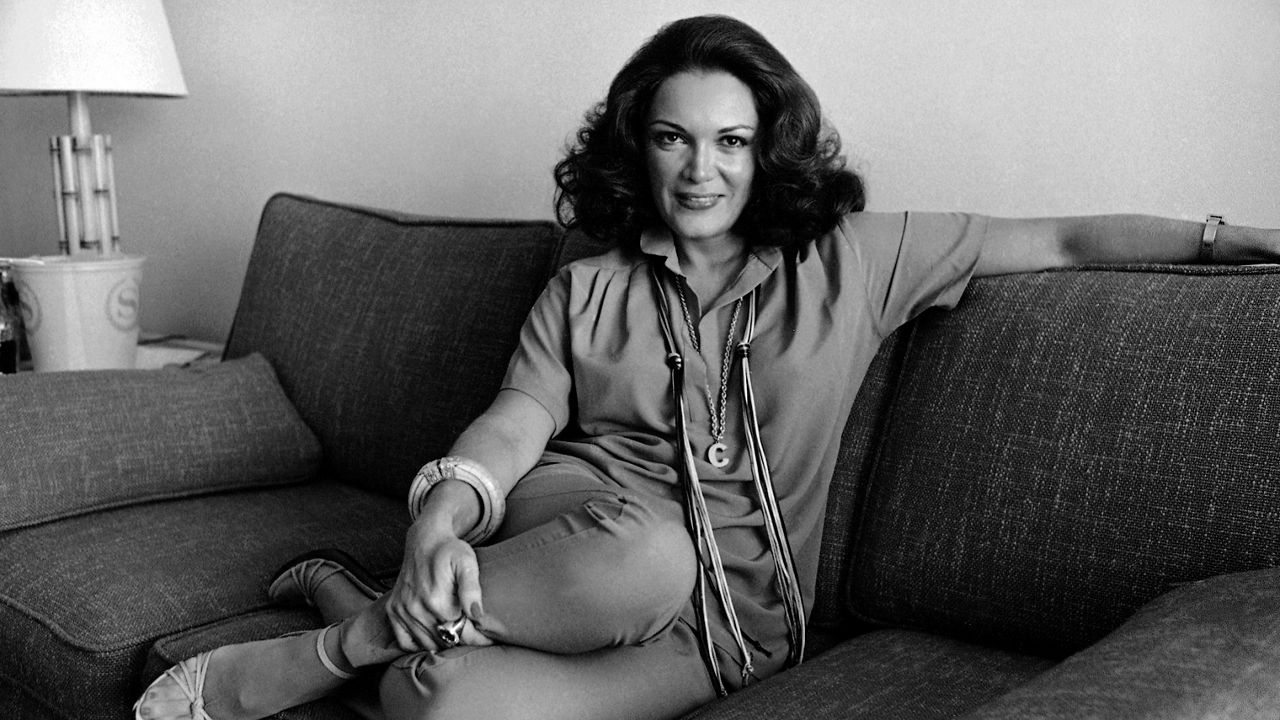EDITOR’S NOTE: Multimedia journalist Anna Albaryan spoke with Pamala Buzick Kim of Stay in LA about Gov. Gavin Newsom signing legislation to provide tax credits for film and TV productions in the state. Click the arrow above to watch the video.
BURBANK, Calif. — As more film and television production takes place outside California, Gov. Gavin Newsom signed legislation Wednesday to expand a tax credit for productions that shoot in the state.
The governor signed a bill more than doubling the California Film and Television Tax Credit Program to $750 million to prevent productions from leaving for other states and countries with lower labor costs and higher incentives.
“I think we put our feet up. We took things for granted,” Newsom said at an event at The Ranch production studio in Burbank, moments before he signed legislation expanding the credit from $330 million. Applications for the expanded incentive program will open Monday.
Newsom said California, which gave birth to cinema in the 1870s, had ceded ground to other parts of the world that had noticed the state’s success as the epicenter of the entertainment industry and decided to compete.
Just one in five TV shows and movies is currently filmed in Los Angeles — a city that is home to Hollywood and was long the center of the industry. But rising costs, incentives that failed to keep up with other states and countries, and the 2023 writers' and actors' strikes have created a perfect storm for productions to flee.
The latest report from the nonprofit permitting group FilmLA found that on-location filming in Los Angeles fell 22.4% in the first quarter of 2025 compared with the last quarter of 2024. Shooting was down in all categories, declining 30.5% for television, 28.9% for feature films and 2.1% for commercials.
FilmLA noted that 17.5% of the decline in television drama productions in the first quarter was because of projects attached to the California Film and Television Tax Credit Program.
"The expanded, modernized California Film & Television Tax Credit Program is essential for one of California's signature industries and the working people who depend on a thriving film ecosystem for their livelihoods," a FilmLA spokesperson told Spectrum News. "As part of ongoing efforts to strengthen our film ecosystem, FilmLA began advocating last year for a more effective tax credit program, providing advocacy partners with industry-leading data and analytics on the prolonged downturn of production activity."
The decline in productions in the state has major economic consequences for California, which on its own is the fourth largest economy in the world.
The California Production Coalition estimates the average location shoot adds $670,000 and 1,500 jobs per day to the local economy. There are about 10,500 entertainment-related businesses in the state, according to a report from Beacon Economics.
“This city has been growing talent for decades and decades and decades,” Noah Wylie, writer, producer and lead actor of the Max streaming series “The Pitt," said at the event. “It shows up in quality, and that’s why ‘The Pitt’ has been so successful.”
Wylie was on break from filing at Warner Bros. studios down the street and was in costume as he spelled out the economic benefits of filming “The Pitt” in LA. He said the show filmed for 135 days over seven months, employing 350 people full time and an additional 200 background performers.
The show spent $35 million in wages and $20 million to purchase materials, but “The Pitt” is increasingly the exception.
Some of the most popular TV shows and films in recent years have been shot in Georgia, not California, including the Netflix original series “Stranger Things” and many of the Marvel films, including the blockbusters “Black Panther” and “Avengers.” And "Sinners" and "Nickel Boys" are among recent movies predominantly filmed in Louisiana.
In addition to the southern states, California is also struggling to prevent productions from leaving for Toronto and Vancouver, in Canada, as well as London and Ireland, which have also seen increased production activity because of lower labor costs and strong tax incentives.
“This [tax credit] expansion is going to mean more jobs, more investment in our communities and more stories being told right here where they belong in California,” California Film Commission Executive Director Colleen Bell said. “The world is watching what we do, and with this landmark investment, we are sending a clear message: California is open for production. California is open for innovation, and California is open for business.”










